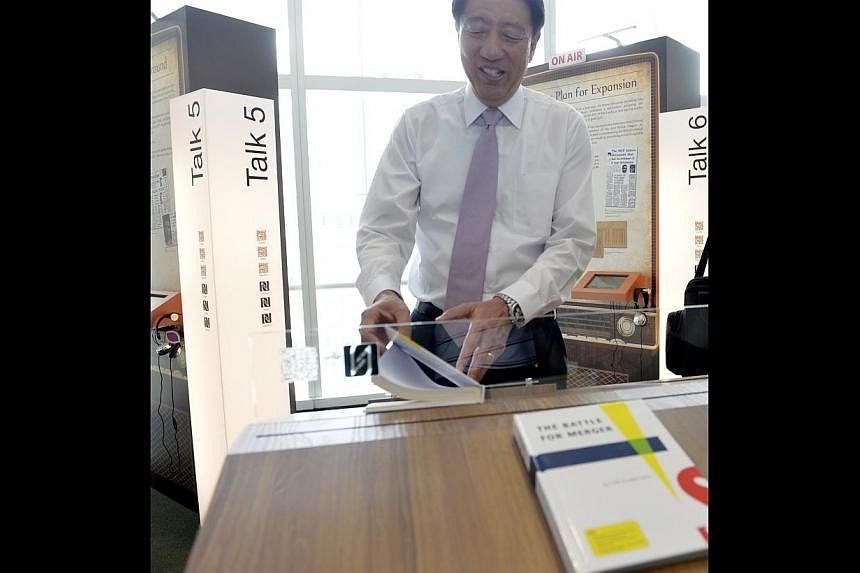It was a tumultuous time, with the Communist Party of Malaya (CPM) and its allies out to derail self-governing Singapore's plans for merger with Malaya.
Taking to the airwaves in 1961 for 12 radio broadcasts to expose the CPM's real agenda to seize power, then Prime Minister Lee Kuan Yew managed to turn the tide.
A compilation of the talks, first published in 1962, has been reprinted. The Battle For Merger was launched yesterday, on the same date as Mr Lee's last broadcast 53 years ago.
At the launch, Deputy Prime Minister Teo Chee Hean said its release could not be more relevant as Singapore turns 50 next year. If the CPM had won, Singapore would be a very different place today. The book will "provide a reality check" to attempts by some historians to recast the role played by communists and their supporters on the issue, he said.
"They portray the fight as merely a peaceful and democratic disagreement over the type of merger. They ignore the more fundamental agenda of the communists to seize power by subversion and armed revolution," he said.
Mr Teo, the Coordinating Minister for National Security and Home Affairs Minister, said the CPM's armed struggle and the Communist United Front's efforts to destabilise Singapore have been well documented by academics and writers. They include top CPM leaders such as Chin Peng and Fong Chong Pik.
These accounts, he said, support a key argument Mr Lee made in his speeches then: that a communist conspiracy to take power was being played out over the issue of merger with Malaya.
The communists and their supporters opposed the People's Action Party's (PAP) vision for merger, fearing their activity would be curbed. They did so through violent and subversive means, arming themselves and infiltrating trade unions and political parties.
In 1961, the pro-communists in the PAP tried to capture the party. After failing, the faction broke away to form the Barisan Sosialis.
Mr Teo said Singapore's road to independence began with the attempt to merge with Malaya - a move that communists, who were in the ascendency regionally and in Singapore, strongly opposed.
"Merger was against the communists' interest... First, it would result in the quick end of British rule in Singapore and make it harder for the Communist United Front to disguise its agenda to establish a communist regime as an anti-colonial struggle," he explained. "Second, the CPM expected the anti-communist federation government to clamp down on them, as internal security would come under the central government in Kuala Lumpur once merger was achieved."
Mr Lee's broadcasts, which began on Sept 13, 1961, were pivotal in lifting the curtain on the communists and exposing their manoeuvrings. It succeeded in getting the majority to back merger in the referendum in 1962.
National University of Singapore historian Albert Lau said the majority of Chinese speakers were on the fence then. "Mr Lee set out in his radio talks to convince the people that, by supporting merger, they would be on the winning side. He wanted to portray the communists as fighting a losing battle. In this, he succeeded."
The book launch comes as the Government barred from public screening here, the film To Singapore, With Love by film-maker Tan Pin Pin, over its partial portrayal of CPM members who condoned violence and subversion. Officials say the book's reprint and launch were planned much earlier.
In his speech, Mr Teo acknowledged there should be respect for the personal conviction of those of different views who fought on the communists' side. But "we should, even more, acknowledge and give our respect and appreciation to the Singaporeans who had the courage and wisdom to reject the CPM's ideology and tactics".
Published by the National Archives of Singapore and Straits Times Press, the book is available at major bookstores at $32.50 (before GST), and at public libraries.


